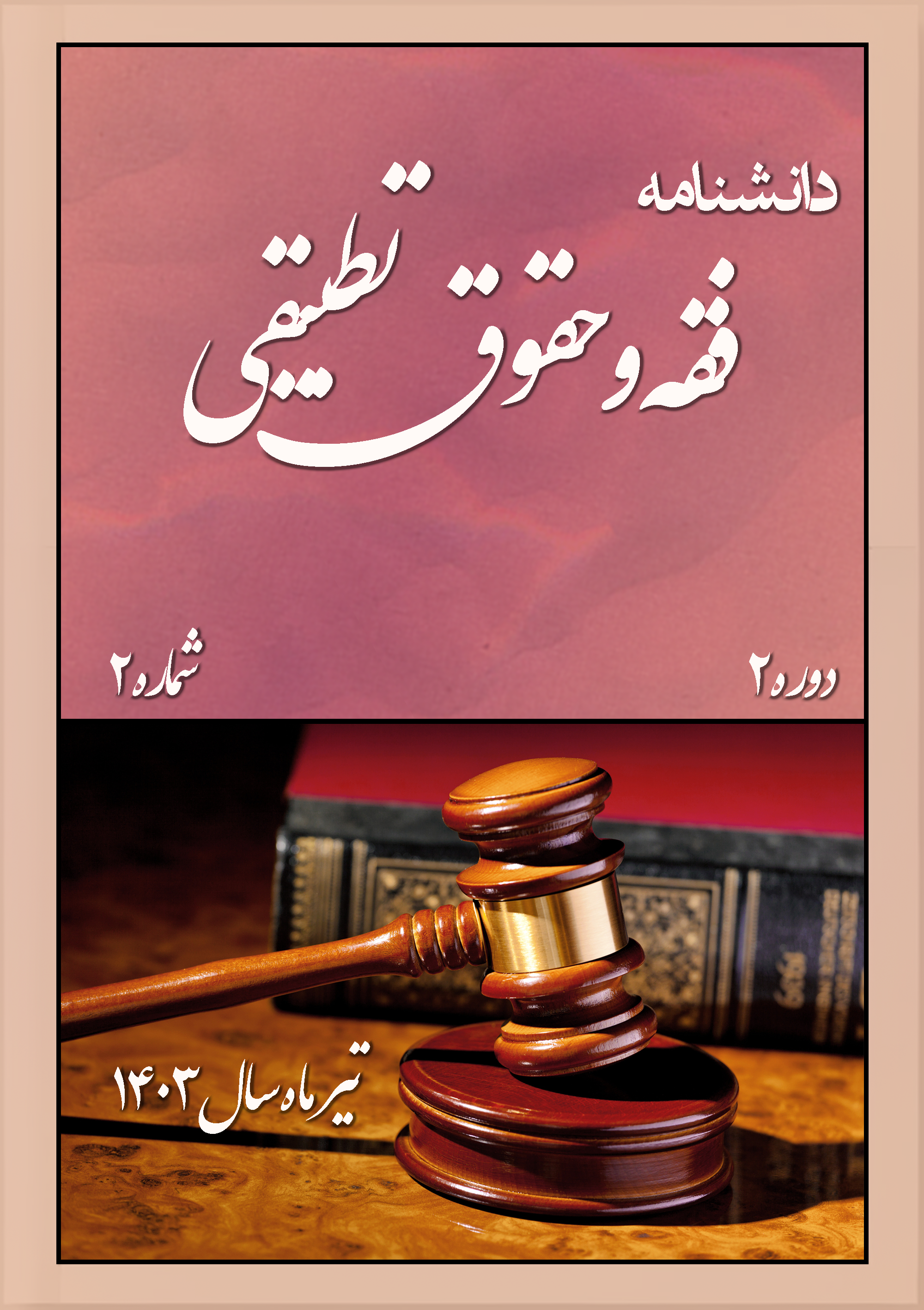Purely Material Offenses in Iranian and English Law
Keywords:
Mere material crimes, consequentialist theory, English judicial authorities, Iranian lawAbstract
Absolute criminal liability refers to the conviction and punishment of an offender without the necessity of fully establishing the mental element or the customary and required fault in the criminal process, whether the absence of such requirement is due to its elimination, presumption, or reduction. Based on this principle, the present study aims to examine purely material offenses in the legal systems of Iran and England. This research is of a descriptive–analytical and comparative nature. Accordingly, the study employed a library-based and documentary research method. The analysis of information was conducted through deductive reasoning and in a comparative framework. Iranian legal scholars, although familiar with and connected to Western legal systems, have occasionally addressed this subject in a limited and marginal manner in their writings and publications. However, judicial authorities have not shown significant sensitivity toward this matter. In contrast to the judicial institutions in England, it can be claimed that within the scope of Iran's criminal justice system, the mentioned rule is rather unfamiliar and has not been institutionalized. At most, what can be inferred from the interpretations of legal scholars and the few judicial decisions available is that criminal liability without fault has been considered on a case-by-case basis, with vague content and scope. Nevertheless, similar to the English criminal system, where the domain of such offenses is broad and can be legally and practically observed across various areas, in Iranian criminal law as well, there are numerous codified laws aligned with the philosophical foundation of offenses without fault.
Downloads
References
Abdolhosseini, S. (2013). Criminal Responsibility of Legal Entities in Light of the New Islamic Penal Code.
Abdollahi, E. (2010). Lessons from Criminal Philosophy: An Introduction to Criminal Responsibility Without Fault in the Legal Systems of Iran and England. Khorsandi Publications.
Ardebili, M. A. (2013). General Criminal Law (Vol. 1). Mizan Publishing.
Ashworth, A. (2000). Is Criminal Law a Lost Cause. Law Quanterly Review, 119.
Baheri, M. (2008). The Impact of Supervision on Criminal Responsibility. Excellence and Law(17), 31.
Clarkson, C. M. V. (2005). Understanding Criminal Law. Sweet & Max well, London.
Duff, A. (2008). Legal Punishment. Standford University, Standford Encyclopedia of Philosophy.
Elliot, C., & Quinn, F. (2000). Criminal Law. Pearson Educa. Tion Limited, London.
Ghasemzadeh, S. M. (2006). Foundations of Civil Responsibility. Mizan Publishing.
Janipour, M., & Abbasi, M. (2013). An Analysis of Absolute Criminal Responsibility from the Perspective of Criminal Law and Imamiyyah Jurisprudence with Emphasis on the Responsibility of Physicians. Scientific-Research Journal of Islamic Jurisprudence and Law, 3(6).
Leigh, L. H. (1982). Strict and Vicarious Liability- A Study in Administrantive Criminal Law. London, Sweet and Maxwell.
Oudah, A. Q. (1994). Islamic Criminal Legislation (Vol. 2). Mizan Publishing.
Pradel, J. (2002). History of Criminal Thought. Shahid Beheshti University Publications in collaboration with Yalda Publishing Institute.
Rawls, J. (1969). Two Concepts of Rules. The Philosophical Review, 64. https://doi.org/10.2307/2182230
Rezapour, L. (2012). Criminal Responsibility Without Fault in the Legal Systems of Iran and England.
Saberi Tolaei, A. (2007). Justification of Punishment in Islamic Law and Contemporary Secular Law.
Shahcheragh, S. H. (2012). A Comparative Study of Absolute Criminal Responsibility in Iranian Law with a Focus on the Common Law System. Dadgostar Legal Journal(78).
Simester, A. P. (2005). Appraising Strict Liability. Oxford University Press. https://doi.org/10.1093/acprof:oso/9780199278510.001.0001
Smith, J. C., & Hogan, B. (2002). Criminal Law. London, Butterecht.
Downloads
Published
Submitted
Revised
Accepted
Issue
Section
License
Copyright (c) 1403 شهاب الدین ناصری (نویسنده); مسعود بسامی; مسعود قاسمی (نویسنده)

This work is licensed under a Creative Commons Attribution-NonCommercial 4.0 International License.










